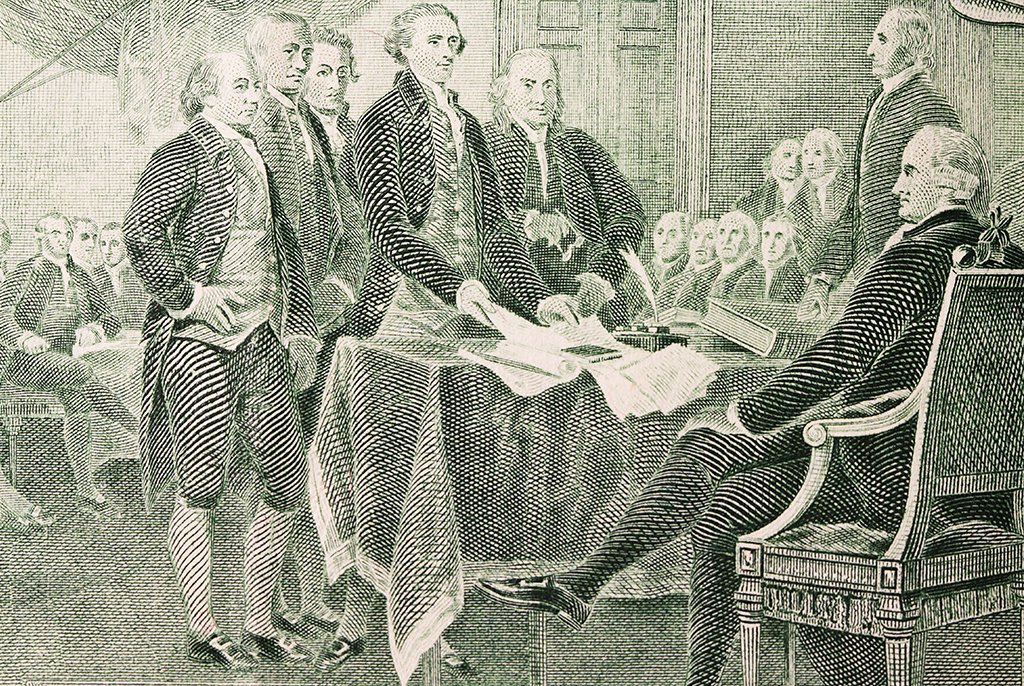Ben Franklin’s Junto Club: Inside America’s first mastermind group

Modern-day mastermind groups offer a combination of education, support, and accountability for CEOs, business owners and executives seeking to grow their businesses and enhance their personal lives.
For leaders with lofty goals, these organizations tap a select group of peers to provide deep insight, valuable perspectives and professional guidance. As the adage goes: two heads (or in this case, a dozen or so people) are better than one.
Although you might have heard of mastermind groups, or already be involved in one, what you might not know is that such peer advisory groups have been around for centuries. In fact, Ben Franklin pioneered the concept with his Junto Club.
Ben Franklin: Founding Father of the mastermind group
Well known as one of the Founding Fathers of the United States, Benjamin Franklin was also the trailblazer behind peer advisory groups.
In 1727, at the age of 21, Franklin cajoled some friends to hold a weekly gathering with the purpose of mutual improvement. The cohort selected a name, the Junto Club, from the Spanish word for “together,” and intended their newfound organization to drive both personal and societal improvement.
The group, also known as the Leather Apron Club, convened avid readers, scholarly intellectuals, and curious thinkers. Meeting on Friday evenings, they discussed issues of morals, politics, and natural philosophy.
In turn, the ideas that emerged during these sessions sparked many public projects, including the first lending library, the University of Pennsylvania, the volunteer militia, and the Pennsylvania Hospital.
The importance of diversity in decision-making
When it came to membership, Franklin included people from a variety of backgrounds. The original Junto Club comprised 12 artisans and tradesmen, ranging from surveyors and printers to cabinetmakers and glassworkers.
In Franklin’s opinion, the broader the experience represented by the Junto, the more likely the combined insights and wisdom would improve members’ decision-making and results.
And it worked! That’s why his focus on multi-industry membership is still reflected in some peer advisory groups today.
3 Junto questions for present-day business groups
Franklin’s original Junto Club meetings posed 24 questions to members to prompt conversation and reflection.
Executives will likely find at least the following three questions are still applicable—and may even wish to pose them to their own peer council:
- Have you any weighty affair in hand, in which you think the advice of the Junto may be of service?
- Do you think of anything at present, in which the Junto may be serviceable to mankind? To their country, to their friends, or to themselves?
- In what manner can the Junto, or any of them, assist you in any of your honorable designs?
How encouraging it is to see the origins of modern “issue processing” at the heart of these questions offering service, discussing opportunities, and providing support to peers.
Let Franklin’s virtues guide your peer advisory group
Perhaps unsurprisingly, Franklin placed a great deal of importance on self-improvement. Part of being a member of the Junto Club was advancing one’s own character. Franklin identified several essential attributes, or virtues, that still resonate:
- Silence: Although the term “active listening” wasn’t coined until the 1950s, Franklin demonstrated an innate understanding of the concept. He believed Junto members should practice silence and listen to their peers to acquire knowledge and make better decisions.
- Humility: Though Franklin often struggled with this particular virtue, he acknowledged the need to keep pride (or ego) in check. In the Junto, members should not be so overconfident as to disregard or undervalue the opinions and perspectives of others.
- Sincerity: Franklin advocated for sincere and honest communication. Junto members were expected to think before speaking and to always be truthful.
- Industry: Well known for his own intentional approach to time management, Franklin believed in being deliberate about how we spend our days. Members of the weekly Junto gatherings were purposeful in investing their time for their own advantage and the common good.
Junto: Achieving excellence together
Benjamin Franklin’s Junto Club would meet for an astonishing 38 years. Inspired by this organization, groups dedicated to mutual improvement have since taken various forms.
From author Napoleon Hill’s “master mind alliance” to the somewhat unconventionally named “Vagabonds” group, which included members like Henry Ford and Thomas Edison, peer advisory groups have continually brought together thought leaders to help make critical decisions, face challenges, and explore opportunities.
So next time you head out to a “meeting of the minds” — whatever form your chosen organization happens to take — rest assured, you are standing on the shoulders of giants. You can expect to reap tremendous benefits from this age-old approach to personal and professional growth.
Related Resources
Category : Personal Development

